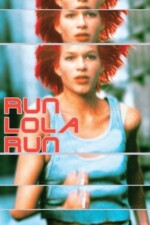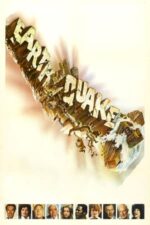More Than Just Groceries: The Supermarket as Cinematic Stage
Isn't it funny how seemingly mundane places can become incredibly fertile ground for storytelling? We walk through supermarkets every week – grabbing milk, bread, maybe a cheeky chocolate bar – rarely giving them a second thought. But filmmakers, bless their creative hearts, see something more. They see a microcosm of society, a stage for human drama, and sometimes, even a canvas for satire.
The supermarket itself is fascinating, isn’t it? A carefully curated environment designed to manipulate our desires, filled with bright lights, strategic product placement, and the constant hum of refrigerators. It's a place where strangers brush shoulders, anxieties simmer beneath polite smiles, and the sheer volume of choice can be overwhelming. And that potential for something unexpected – something unsettling or poignant – is what draws filmmakers in.
Take "Czech Dream," for example. That film’s audacious hoax, building an entire fictitious supermarket from scratch, isn't just a prank; it’s a brilliant commentary on our susceptibility to manufactured realities and the power of suggestion. How easily we can be convinced that something real exists when presented with enough convincing imagery! It echoes today in our age of deepfakes and carefully crafted online personas – are we always sure what we're believing?
Then there’s “Summer’s End,” which uses a struggling grocery store as the backdrop for a tender, melancholic romance. The setting isn't just window dressing; it reflects the fading traditions and sense of community that Raymond and his sweetheart are clinging to. It’s a beautiful illustration of how places – even supermarkets – can become imbued with personal meaning and nostalgia. I remember my own childhood grocery store, Mr. Henderson’s, where he knew everyone by name and always had a joke ready. Those memories feel so much richer than just remembering the food we bought!
Even films that don't explicitly focus on the supermarket use it to great effect. "Raising Arizona," with its quirky, offbeat humor, features supermarkets as places of both desperation (the initial theft) and fleeting moments of connection. And in “Earthquake,” amidst the chaos and devastation, the image of a looted supermarket – a symbol of societal breakdown – is particularly striking.
And let's not forget "Animal," where the setting provides a backdrop for Mike’s redemption arc. The mundane routine of stunt work juxtaposed with the high-stakes world of cinema creates an interesting tension.
The supermarket, it turns out, isn't just about buying groceries; it's a surprisingly rich and versatile cinematic landscape. It offers filmmakers a unique opportunity to explore themes of consumerism, community, loss, and even deception – all within the familiar confines of a place we thought we knew. So next time you’re wandering down the cereal aisle, take a moment to appreciate the potential for storytelling lurking just beyond the frozen peas. You never know what cinematic inspiration might be waiting!







































